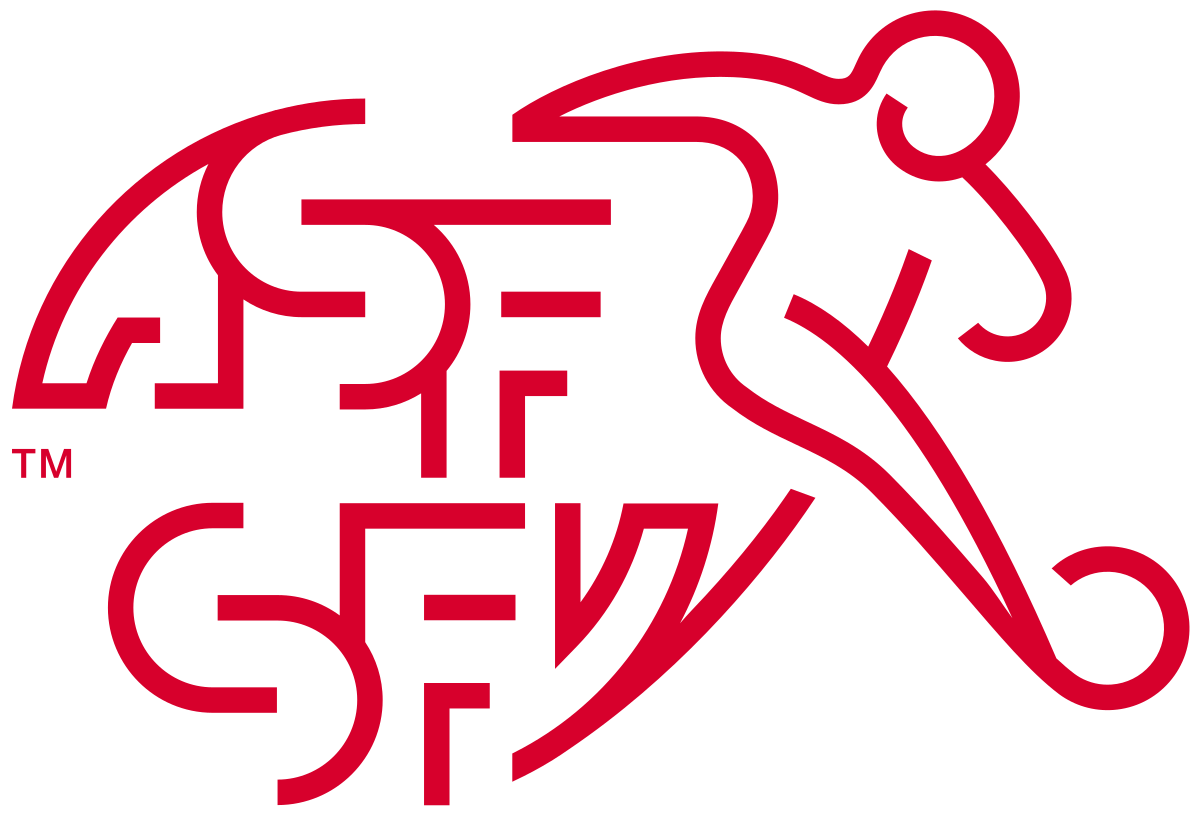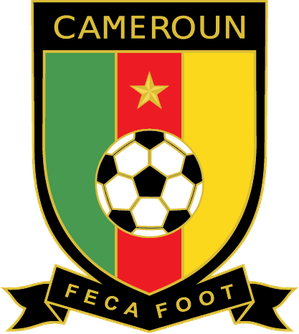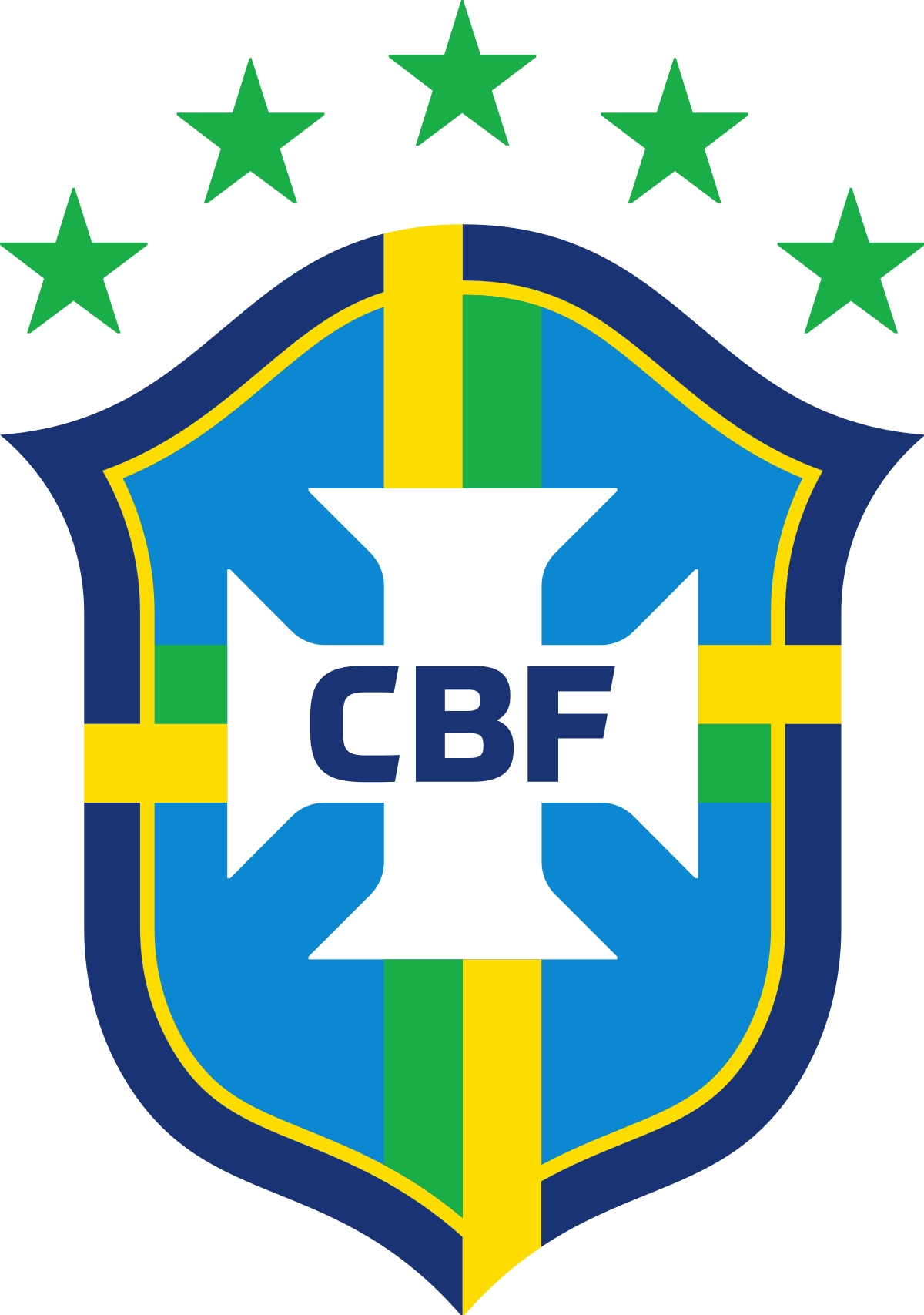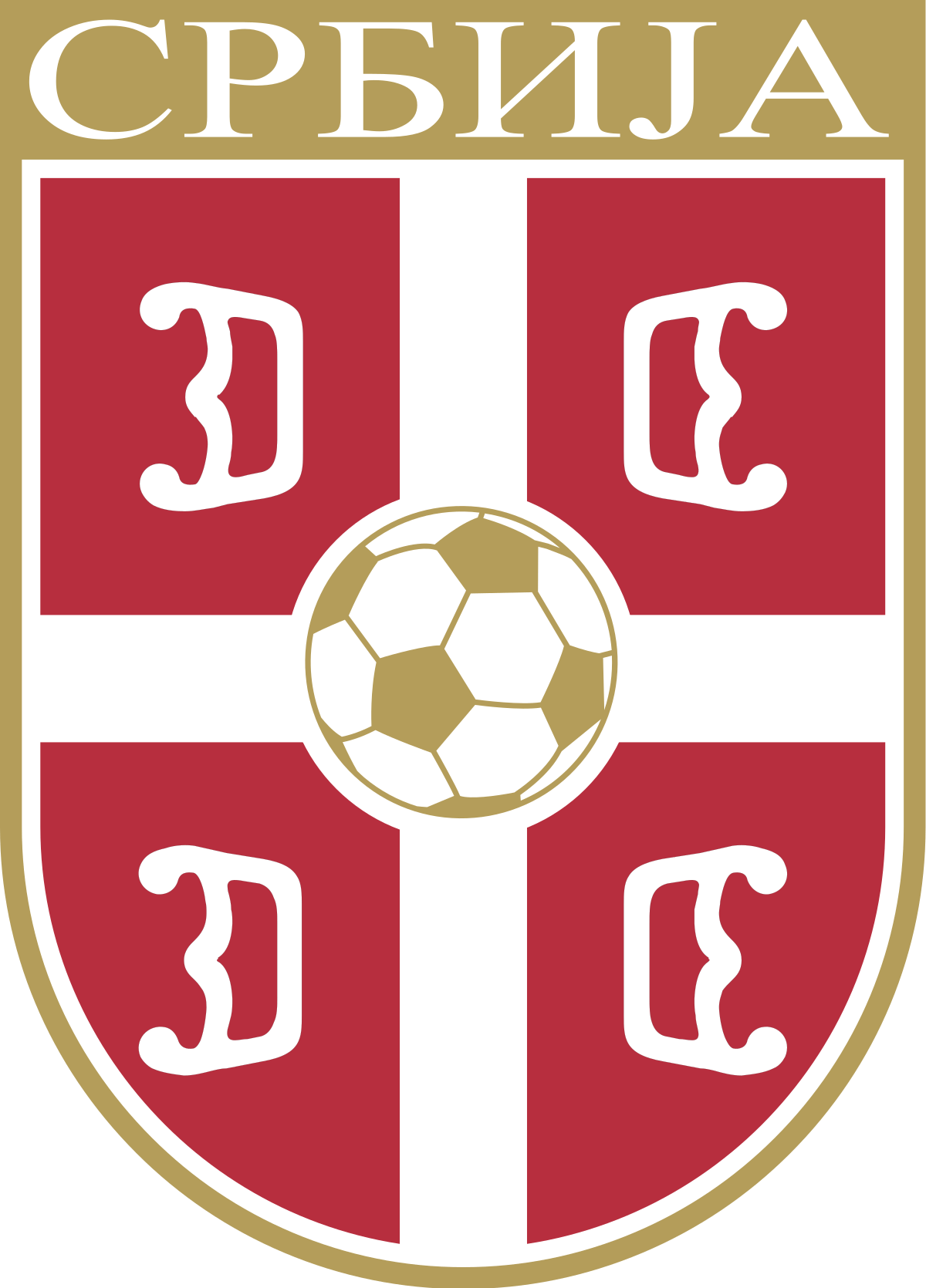
Switzerland (Red Crosses)
Quarter Finals: 3 (1934, 1938, 1954)
Round of 16: 4 (1994, 2006, 2014, 2018)
Group Stage: 4 (1950, 1962, 1966, 2010)
Current FIFA Ranking: 15
Granit Xhaka
Read More
Breel Embolo
Read More
Xherdan Shaqiri
Read More
Murat Yakin
Read More
Group G Schedule
Game 1 – Thursday 24th November 2022

Cameroon
13:00 Qatar Time/10:00 GMT
Al Janoub Stadium, Al Wakrah
Game 2 – Monday 28th November 2022

Brazil
19:00 Qatar Time/16:00 GMT
Stadium 974, Doha
Game 3 – Friday 2nd December 2022

Serbia
22:00 Qatar Time/19:00 GMT
Stadium 974, Doha
Notable Honours
Despite a long history as a national team, Switzerland have never progressed to the semi-finals of an international tournament, their best performance being the quarter-final stage. Perhaps their most significant achievement is winning the Silver Medal at the 1924 Summer Olympics.
Beginnings and Early World Cups
Switzerland is one of the more traditional countries in international football, having played their first match in 1905 – a 1-0 defeat to France in Paris. Indeed, the Swiss Football Association had been created ten years earlier, in 1895, and was a founder member of FIFA in 1904. It joined UEFA in its foundation year of 1954. Interestingly, both FIFA and UEFA are now based in Switzerland – FIFA in Zurich and UEFA in Nyon. Switzerland’s first real recognition on the world stage came in the 1924 Paris Summer Olympics, where they took the Silver Medal after a 3-0 defeat to Uruguay in the final. Perhaps Switzerland’s first star, forward Max Abegglen, starred in the tournament scoring six goals. Abegglen played again in the Olympics four years later in Amsterdam, but Switzerland could only reach the round of 16. Switzerland did not enter the inaugural World Cup in 1930, but they did play in 1934, where Abegglen was absent (though his brother Andre aka ‘Trello’ did play, Andre later died in 1944 at the age of just 35). In the 1934 edition in Italy, Switzerland first defeated the Netherlands 3-2 in the first stage. However, they were then beaten by the same scoreline in the quarter-final by a strong Czechoslovakia team who would go on to make the final. At this time, the Swiss were employing revolutionary tactics, with defender Severino Minelli being one of the first players ever to play as a sweeper.
In 1938 in France, Switzerland managed to defeat a German team ruled by Nazism 4-2 in a replay after an initial 1-1 draw, with Andre Abegglen scoring three goals across both games. However, they were defeated 2-0 by Hungary in the quarter-finals. Still, two quarter-final finishes in their first two World Cup appearances represented moderate success. The World Cup did not take place in 1942 and 1946 due to World War II, so when 1950 arrived in Brazil, the Swiss were keen to do well. They had qualified by easily defeating Luxembourg, but at the tournament, where only one team qualified for the final group stage, the Swiss were very unfortunate in being drawn with the hosts. Their first game was a crushing 3-0 defeat to Yugoslavia. However, they improved as the tournament progressed, gaining a hard-fought 2-2 draw against Brazil in Sao Paulo and then beating Mexico 2-1. This improvement was not enough to stop Brazil from topping the section, however, as Switzerland were eliminated. Among the talented Swiss players at this tournament was forward Jacques Fatton, who went on to score 90 goals in 109 games for Servette between 1957 and 1963.
World Cup Hosts
The Swiss had been selected as hosts for the 1954 World Cup by FIFA in July 1946, so they did not have to qualify. At the tournament, Fatton was joined by star forward Josef Hugi, who scored 22 goals in 34 appearances for the Swiss and 244 goals in 320 appearances for Basel between 1948 and 1962. Switzerland first beat Italy with a Hugi winner but then lost 2-0 to England. In a play-off against the Italians to decide who would advance, Switzerland won out rather easily, with Hugi scoring two and Fatton scoring one in a 4-1 victory. The quarter-final match against Austria in Lausanne was extremely entertaining and, to this day, remains the highest-scoring World Cup match of all time, with the Austrians winning 7-5. Hugi’s hat-trick in the game had not been enough to clinch progression due to a leaky defence. However, the Swiss squad had done themselves proud on home soil against tough opposition – especially Hugi and Fatton and centre-back Roger Bocquet, who had insisted on playing with a brain tumour. Hugi scored an impressive six goals at the tournament, and he remains the all-time top-scoring Swiss player at the World Cup.
Period of Decline
Despite the reasonably impressive performance on home soil, the Swiss failed to qualify for the 1958 edition in Sweden. The inaugural European Nations’ Cup (now the European Championship) took place in 1960, but Switzerland did not enter. They did qualify for the 1962 and 1966 World Cups, but both tournaments were miserable as they lost every game in each. From here, Switzerland entered a period of decline, not qualifying for another tournament until 1994. This included six consecutive World Cups and eight consecutive European Championships. Throughout this period, they did have some quality players, such as midfielder Heinz Hermann and defender Alain Geiger – who are the two highest-capped Swiss players ever with 118 and 112 appearances respectively – but they could not translate moderate talent into qualifying for tournaments.
Resurgence
However, English manager Roy Hodgson was appointed Swiss coach in 1992. With his tactical ideas, they were resurgent, rising to third in the FIFA World Rankings by August 1993. They finally qualified for a tournament, USA ’94, after 28 lean years. At the tournament, with a veteran Geiger as captain and talented young striker Stephane Chapuisat playing, Switzerland finished second with four points in a group containing Romania, Colombia, and the hosts. They were then heavily defeated 3-0 by Spain in the round of 16, but it had been a decent return to the international stage. Qualification for Euro 1996 in England followed under new Portuguese coach Artur Jorge, but the Swiss endured a poor campaign. They started well with an equaliser from talented forward Kubilay Turkyilmaz gaining a point against the hosts. However, defeats to the Netherlands and Scotland without scoring a goal in reply followed, and Switzerland finished bottom of the group.
A Few Absences Then Euro 2004 and World Cup 2006
There was now a failure to qualify for the next three tournaments, the World Cups of 1998 and 2002 and Euro 2000, and the Swiss were wondering if they were returning to the dark days of long-term absences from tournaments. However, under coach Kobi Kuhn, they qualified for Euro 2004 in Portugal. They had talented players such as Stephane Henchoz, Johann Vogel, Tranquillo Barnetta and the mercurial Hakan Yakin in their side, but they were eliminated from a group also comprising France, England and Croatia, finishing bottom with only a goalless draw against the Croatians to show for their efforts.
The 2006 World Cup was better, though, for the Swiss. With striker Alexander Frei leading the line, Switzerland first drew with France and then defeated Togo and South Korea by 2-0 margins to qualify for the round of 16 in the first place. It had been an excellent group stage for the Swiss, where they didn’t score many goals but displayed strong defensive solidity, not conceding a goal. The round of 16 match against Ukraine was an incredibly drab affair, described by some as the poorest World Cup match in history. After a goalless draw, the Swiss missed all three of their opening penalties in the shootout, leading to a 3-0 Ukraine shootout win. They had been eliminated from the tournament without conceding a single goal.
Co-Hosting Euro 2008, and Results in the 2010 and 2014 World Cups
Despite the poor final game in 2006, the group stage had represented real progress for the Swiss, and they looked forward with hope to Euro 2008, which they were due to co-host with Austria. Switzerland entered the tournament with new, fresh blood, such as Diego Benaglio, Gelson Fernandes, Johan Djourou, Valon Behrami, and Stephan Lichtsteiner. However, they could not make an impression. Indeed, they finished bottom of a group consisting of Portugal, Turkey, and the Czech Republic, with only a 2-0 win over the Portuguese in the final game as consolation. They had submitted a poor performance on home soil, and with the exception of 2006, Switzerland’s recent history seemed to suggest that they could qualify for tournaments but not do well once they were there.
The Swiss qualified for South Africa 2010 under German Ottmar Hitzfeld and shocked European Champions Spain in their opening game, winning 1-0. However, a defeat to Chile and a draw with Honduras again eliminated them in the group stage. They did, however, break the record for the longest streak without conceding a goal in World Cup matches, thanks primarily to their 2006 exploits, at 559 minutes. The national team then failed to qualify for Euro 2012, the first time they had not participated in the Euros in ten years. There was hope, though, in the emergence of young maverick attacker Xherdan Shaqiri. By Brazil in 2014, other new players such as Granit Xhaka, Yann Sommer, Josip Drmic, Haris Seferovic and Ricardo Rodriguez had emerged. Thanks to this relatively young team, they finished second in a group containing France, Ecuador, and Honduras. However, after a battle of endurance in the round of sixteen, Argentina managed to overcome the Swiss with an Angel Di Maria goal in the 118th minute.
The Petkovic Era
New coach Vladimir Petkovic took over in 2014, and under his stewardship, the Swiss qualified for Euro 2016. They finished second in a group also containing France, Albania, and Romania, and in the round of sixteen, they lost 5-4 on penalties to Poland, with Xhaka missing his kick. Again, the Swiss had failed to reach the quarter-finals of a major tournament since returning under Hodgson at USA ’94. This run continued in Russia in 2018, where Switzerland finished second in a group also comprising Brazil, Serbia, and Costa Rica. Their results included a creditable draw with Brazil, but Sweden defeated them in the round of sixteen. In 2019 they made the Nations League Finals but were eliminated by Portugal.
At the pan-European Euro 2020, Switzerland finally managed to qualify for a quarter-final. After qualifying from their group as one of the best third-place qualifiers, they faced France in Bucharest. In what has become known as ‘Magic Monday’ (due to Croatia also performing a similar feat against Spain on the same day), the Swiss came back from 3-1 down against the World Champions thanks to late goals from Haris Seferovic and Mario Gavranovic. They won the shootout 5-4, with the first nine players converting before French starlet Kylian Mbappe missed the final kick. The Swiss were jubilant and went on to face Spain in the quarter-final, but they lost on penalties this time. Still, it had represented Switzerland’s best tournament placing since their return in 1994, and under Petkovic, the Swiss instilled a rigid and organised system. Former player Murat Yakin replaced Petkovic in 2021. As a team which tends to qualify for tournaments but not overly impress or entertain when they get there, a group with past foes Brazil and Serbia (and Cameroon) represents a challenge. However, Yakin will have designs on qualifying for the knockout stage, as Switzerland sometimes do.
Road to Qualification
UEFA Group C: 1st
Record: Played:8 W:5 D:3 L:0 F:15 A:2 GD:+13 Points:18
Date of Qualification: 15th November 2021
Switzerland were unlucky in the qualifying draw, being grouped with powerhouse Italy. Also comprising Northern Ireland, Bulgaria, and Lithuania, the group was incredibly tight between the Swiss and the Italians. They both won their opening two games. However, Switzerland were then the odd team out and sat out the next two matchdays, where the Italians picked up four points. Heading into the fifth matchday, Switzerland had two games in hand but were four points behind Italy. To compound matters, Italy were the visitors in Basel, so a loss could be crucial. However, the Swiss and Italians played out a goalless draw. The sixth matchday saw Italy beat Lithuania at home 5-0, whereas Switzerland drew 0-0 in Northern Ireland. Switzerland were now six points behind Italy. However, it was now Italy’s turn to sit out for two matchdays. Switzerland took the maximum six points with wins at home to Northern Ireland and away to Lithuania.
Now tied on fifteen points each, Switzerland visited Italy. They took the lead early on, but Italy equalised to send the group to the final day with both teams on sixteen. With Italy ahead on goal difference, they could not win in Northern Ireland. At the same time, the Swiss romped to a 4-0 win at home to Bulgaria to qualify by two points over the Italians. In the process, Switzerland had cursed Italy to the play-off and their eventual second consecutive failure to qualify for the World Cup, which was unthinkable to the Italians. Switzerland’s top scorer in qualification was Breel Embolo, with three goals. However, their qualification was really built on a strong defensive backbone, picking up eight clean sheets and not conceding a goal at home. They will hope to similarly frustrate their opponents in Qatar.
Meet the Coach: Murat Yakin (age 48)
Yakin was a centre-back whose career included spells at Grasshoppers and Basel in his homeland, winning the Swiss Super League three times with the latter. He also won 49 caps for the national team. His managerial career has taken in many clubs in Switzerland. Indeed, he has won the Swiss Super League twice with Basel, in 2013 and 2014. He was appointed national team manager in August 2021. As a former defender, he will want his team to be defensively organised. However, he will also hope for goals from his attackers.
Possible Starting XI and Style of Play

In goal, Yann Sommer is the undisputed number one, and his ability to make saves will be crucial as it has been in the past. However, he has been struggling with injury, so Gregor Kobel and Philipp Kohn will deputise. Yakin will probably start with a back four, with elegant centre-backs Nico Elvedi and Manuel Akanji likely to play, though Fabian Schar has been a consistent presence for the national team. At full-back, Silvan Widmer should play on the right, and legend Ricardo Rodriguez on the left. The latter boasts a high work rate, great attacking ability and crossing, and a fantastic shot. In midfield, Remo Freuler and erratic captain Granit Xhaka are constants. This partnership is an energetic and technical double pivot capable of controlling games. Denis Zakaria and Fabian Frei provide backup. In attack, there are many options. Djibril Sow, Ruben Vargas, and the talismanic Xherdan Shaqiri are likely to play behind Breel Embolo up front. Goalscorer Haris Seferovic is an option off the bench, as is talented youngster Noah Okafor.
Yakin might be pragmatic and employ either a back three or a back four, depending on what the situation demands. He will do what he feels is sensible. Even though this Swiss team has a lot of talent currently playing at good European clubs, they do not tend to take tournaments by storm. They are more steady, conservative and consistent performers rather than entertainers.
Squad List
Goalkeepers: Gregor Kobel, Yann Sommer, Jonas Omlin, Philipp Kohn
Defenders: Manuel Akanji, Eray Comert, Nico Elvedi, Fabian Schar, Silvan Widmer, Ricardo Rodriguez, Edimilson Fernandes
Midfielders: Michel Aebischer, Xherdan Shaqiri, Renato Steffen, Granit Xhaka, Denis Zakaria, Fabian Frei, Remo Freuler, Noah Okafor, Fabian Rieder, Ardon Jashari
Forwards: Breel Embolo, Ruben Vargas, Djibril Sow, Haris Seferovic, Christian Fassnacht
Key Players
Granit Xhaka
Date and Place of Birth: (27.09.1992, Basel)
Current Club: Arsenal
Caps/Goals: 106/12
A tough tackling but also elegant central midfielder, Xhaka has a good shot and a wide range of passing. Xhaka started his career at Basel, where he won the Swiss title in his two seasons. From there, he moved to Borussia Monchengladbach in Germany, where he impressed enough in his four years to be signed by English club Arsenal just before Euro 2016. At Arsenal, he has been a divisive figure. Some find his on-edge and conversely elegant style of play attractive, and others feel he is a liability. Indeed, discipline is a huge problem for him as he is liable to lose control and produce a moment of madness at any instant. Evidence of this is that he has collected a staggering 131 yellow cards in his club career, plus seven yellow cards leading to red cards. As captain, though, he commands respect in the Swiss dressing room, and his authority and leadership will be crucial for Yakin.
Breel Embolo
Date and Place of Birth: 14.02.1997, Yaounde, Cameroon)
Current Club: Monaco
Caps/Goals: 58/11
Born in Cameroon and becoming a Swiss citizen in 2014, Embolo is a pacey, enigmatic, unpredictable player who can play all along the front line. He is also noted for his ball-winning capabilities, energy, finishing, and physical strength. He started his career at Basel, winning the Swiss league three years in a row. From there, he spent three years at Schalke in Germany, then a further three years at Borussia Monchengladbach, before joining French club Monaco this summer. Many feel he has never quite delivered on his undoubted potential. However, he has started the season well at Monaco, scoring eight goals in 23 appearances so far. He played in Russia in 2018 and Euro 2020, scoring against Wales in the latter. He is now in his peak years and will want to make an impact in Qatar, especially against his home country of Cameroon.
Xherdan Shaqiri
Date and Place of Birth: (10.10.1991, Gjilan, the former Yugoslavia)
Current Club: Chicago Fire
Caps/Goals: 108/26
Beginning his career playing in the same Basel team as Xhaka, the ‘Alpine Messi’ moved to Bayern Munich in Germany in 2012. He scored 17 goals in 81 games for Bayern and became the most decorated Swiss player of all time, but his career stalled due to rotation and injury. After spending a year in Italy at Inter Milan, Shaqiri joined Stoke City in the Premier League in 2016. There he became a cult figure, entertaining the crowds with his mazy dribbling, explosive shooting, and ability to pick out a pass. His exploits at Stoke won him a move to Liverpool, where he was again a cult hero. However, he could not quite nail down a place in the side and in 2021, he spent a year at French club Lyon before moving to Chicago Fire in February. A technical player who comes in off the right-hand side to cause havoc, Shaqiri, alongside Embolo, can create a moment of magic from nothing for the Swiss. Being of Albanian descent, he will be particularly motivated against Serbia.
